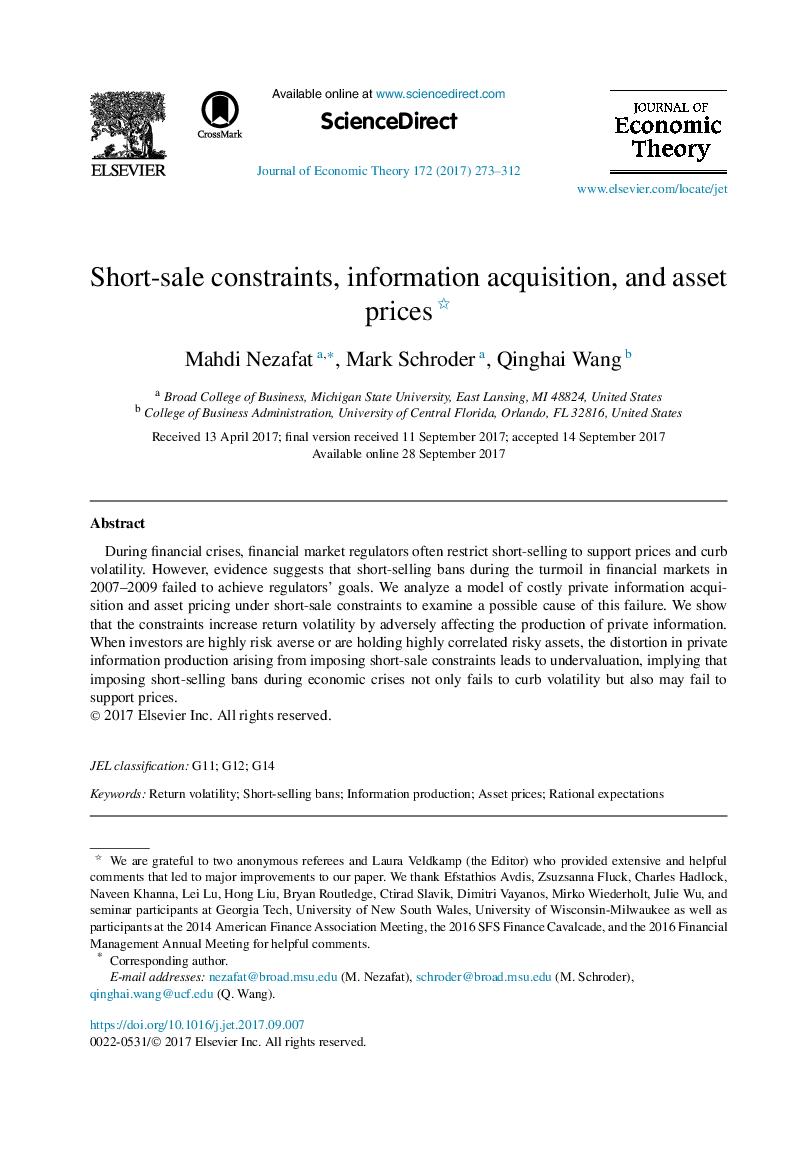| Article ID | Journal | Published Year | Pages | File Type |
|---|---|---|---|---|
| 5100051 | Journal of Economic Theory | 2017 | 40 Pages |
Abstract
During financial crises, financial market regulators often restrict short-selling to support prices and curb volatility. However, evidence suggests that short-selling bans during the turmoil in financial markets in 2007-2009 failed to achieve regulators' goals. We analyze a model of costly private information acquisition and asset pricing under short-sale constraints to examine a possible cause of this failure. We show that the constraints increase return volatility by adversely affecting the production of private information. When investors are highly risk averse or are holding highly correlated risky assets, the distortion in private information production arising from imposing short-sale constraints leads to undervaluation, implying that imposing short-selling bans during economic crises not only fails to curb volatility but also may fail to support prices.
Related Topics
Social Sciences and Humanities
Economics, Econometrics and Finance
Economics and Econometrics
Authors
Mahdi Nezafat, Mark Schroder, Qinghai Wang,
